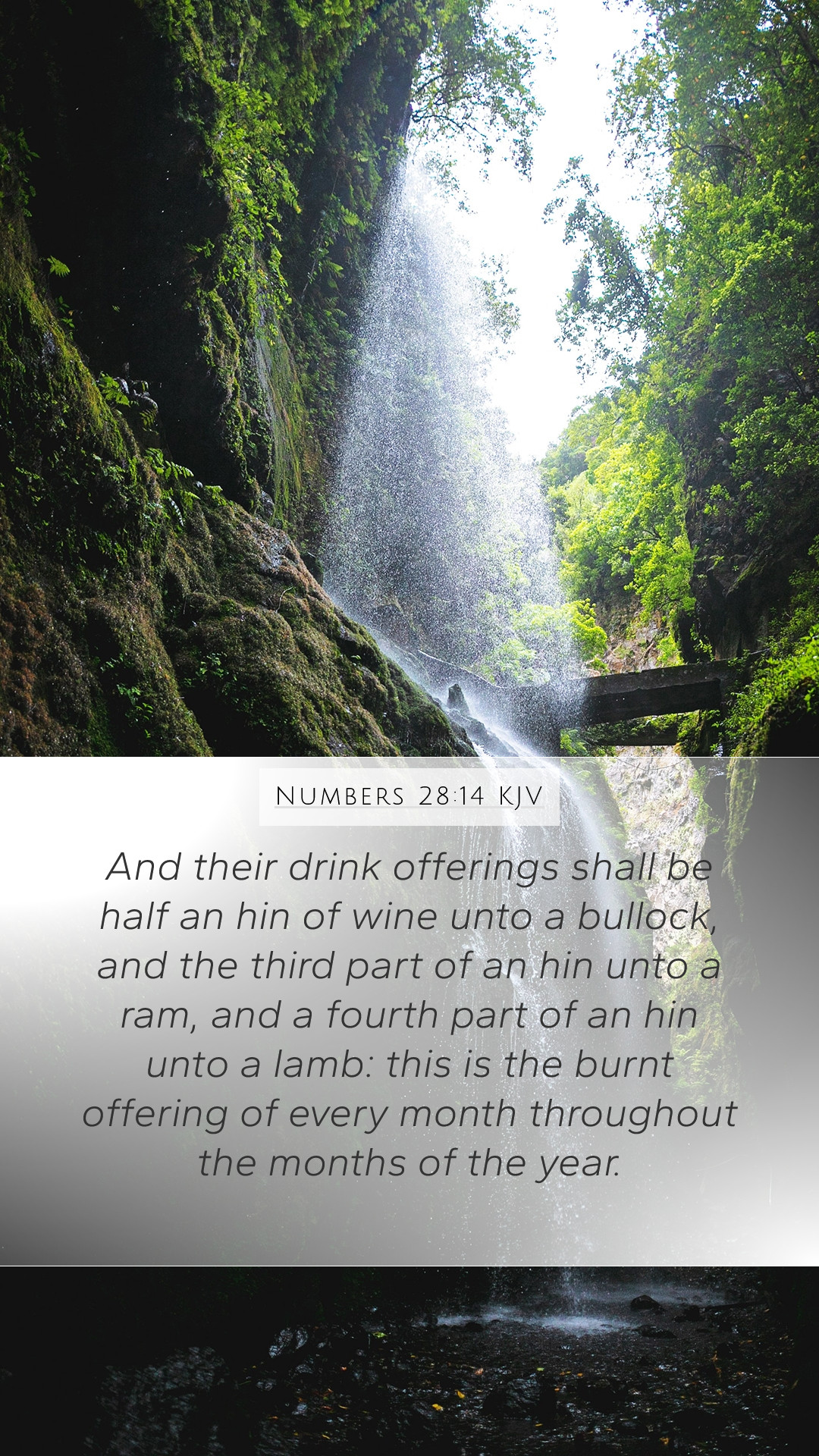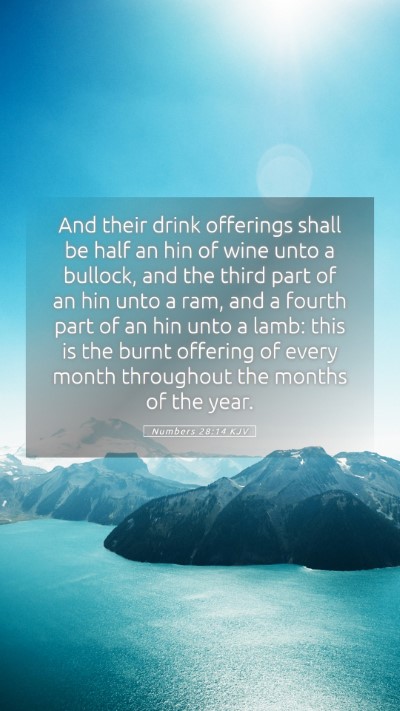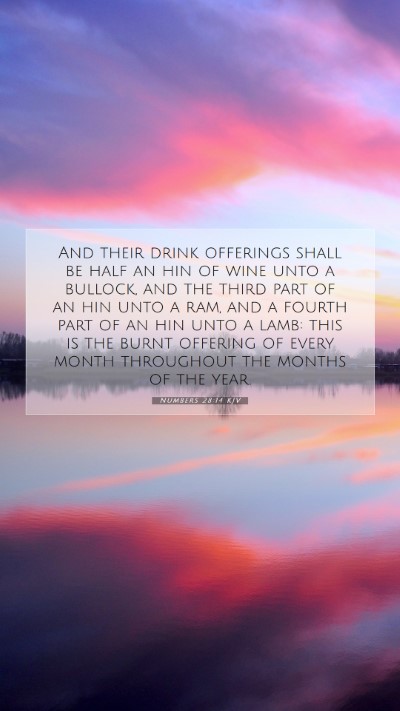Bible Verse Commentary: Numbers 28:14
This verse reads:
"And their meat offering shall be of flour mingled with oil; and their drink offering shall be wine, the fourth part of a hin."
Understanding Numbers 28:14
Numbers 28:14 details instructions regarding the offerings that were to be brought to the Lord, highlighting the significance of meat offerings, drink offerings, and their prescribed proportions. This verse is part of a larger discourse on the offerings to be made by the Israelites, which served as a means of worship and atonement.
Insights from Public Domain Commentaries
-
Matthew Henry's Commentary:
Matthew Henry emphasizes the importance of approach to God in worship. The offerings described are not merely ritualistic; they symbolize devotion and acknowledgment of God's provision. He underlines the necessity of offering our best to God, denoting a heart of gratitude and piety.
-
Albert Barnes' Notes:
Albert Barnes elucidates that the specific mention of "flour mingled with oil" highlights the need for quality in offerings. It emphasizes the idea that the offerings were to be made with care and sincerity, reflecting the overall dedication of the Israelites to further their relationship with God.
-
Adam Clarke's Commentary:
Adam Clarke discusses the symbolism behind the drink offerings, insisting they add to the meat offerings as a means of complete dedication to God. He points out the fourth part of a hin indicates a standardized amount, which stresses consistency in worship practices that bind the community in common acts of reverence.
Historical Context
The Book of Numbers narrates the journeys and laws given to the Israelites after their exodus from Egypt. The instructions, including those in Numbers 28:14, are aimed at establishing a structured worship system as the community prepared to enter the Promised Land.
Theological Significance
In essence, Numbers 28:14 speaks to the heart of worship in the Old Testament, where offerings were a tangible expression of faith and reliance on God. It also foreshadows the ultimate sacrifice of Jesus, where the New Covenant would fulfill the Old Testament requirements of sacrifices.
Application of This Verse
As modern believers, understanding this verse encourages us to reflect on our approach to worship. We are reminded to offer God our best—not just in material terms, but also in our actions, thoughts, and devotion. It teaches the importance of dedicating time and resources to cultivate a relationship with God, akin to the rituals performed by the Israelites.
Related Bible Cross References
- Leviticus 2:1-2: Instructions on grain offerings.
- Exodus 29:40: Law regarding drink offerings alongside burnt offerings.
- Ezekiel 45:14: Description of offerings in the land during the future restoration.
Conclusion
Numbers 28:14 is not just a historical command; it provides profound insights into the nature of worship, sacrifice, and our relationship with God. The detail in the offerings serves as a broader lesson in the care and quality we should embody in our devotion, which can be a guide for our daily lives and spiritual practices.
Further Study Resources
- Bible Study Groups: Engage in discussions about the significance of Old Testament laws and their implications for faith today.
- Online Bible Study: Utilize interactive resources to dive deeper into the meanings and contexts of scripture.
- Bible Study Guides: Look for literature that shares insights into ancient practices and their meanings for contemporary believers.
For anyone seeking to gain a deeper understanding of scripture, Numbers 28:14 offers a gateway into the sacrificial system laid out in the Bible, encouraging a lifestyle of worship and dedication.


